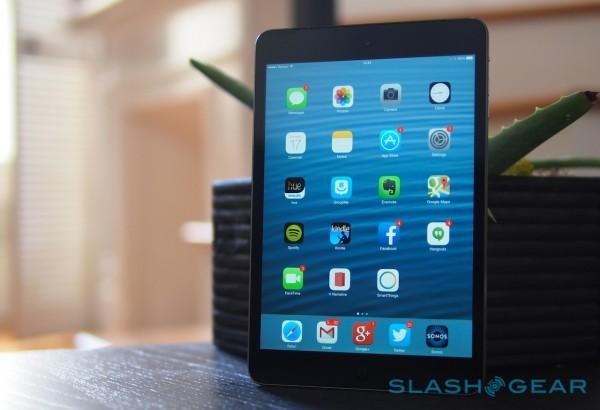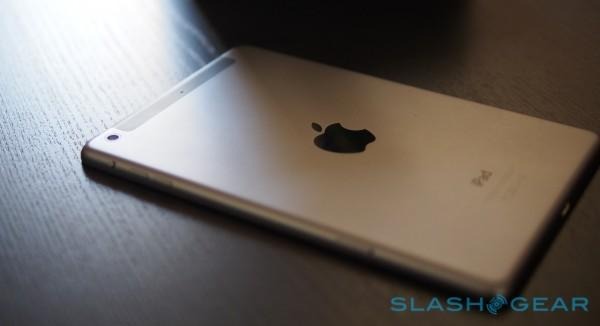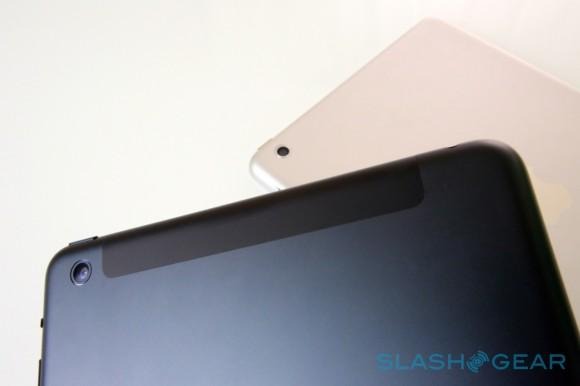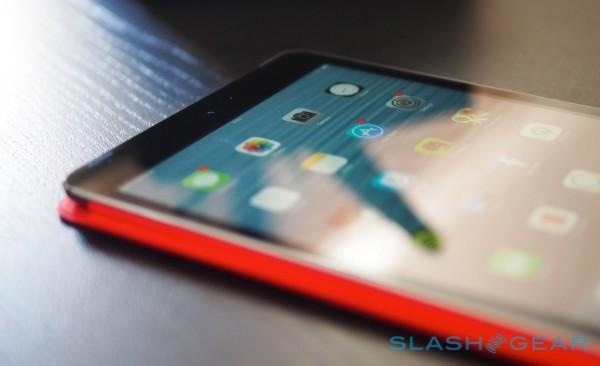iPad Mini Retina: Four Months On
The iPad mini with Retina display addressed a lot of the complaints iOS tablet users had of its first-gen predecessor. No longer did a smaller tablet mean lesser screen resolution or a weaker processor, two of the key criticisms, and while the iPad Air undoubtedly improved Apple's full-sized slate, many suggested that the still-more-affordable mini version had become the obvious choice for new tableteers. Four months in, though, has the shine of the Retina iPad mini faded?
I'd been a keen iPad mini user since the original version came out, setting aside my full-sized iPad as I was won over by the 7.9-inch model's charms.
At the time, I credited its similarities to Star Trek's PADD or the ubiquitous "screens" in Iain M. Banks' Culture novels for a fair chunk of its appeal, particularly in how transparent it made the computing process. The iPad mini felt like an "appliance" in the best sense: predictable behavior, lengthy battery life, tactile enough to be compelling to pick up, but not so distinctive as to distract from what's on-screen.

I criticized the compromise of Retina resolution (though conceded it would have brought compromises of its own), and the relatively underpowered processor in contrast to the full-sized iPad, and Apple addressed both of those shortcomings in the second generation.
Did the iPad mini with Retina display improve things overall? It's still my go-to slate, though I also use a Surface 2 at times, and more "phablet"-scale phones have worked their way into my everyday life. The faster processor has proved to be less important as much as the doubling of memory from 512MB to 1GB has: I've seen fewer memory-related crashes of Safari when loaded down with tabs, for instance.
The display has made consuming text and photos more enjoyable, though I've also taken to casting iPad content to either Apple TV or Google Chromecast (depending on source app). I've also used the mini to do some photo and video editing, in a pinch, and Apple's decision to give away apps like GarageBand and iMovie makes keeping them around just for the occasional tinkering feel more acceptable than when I had to balance everyday usefulness with their individual cost.

Not everything has been perfect. The original iPad mini's battery life was incredibly good, almost unbelievably so compared to the Android tablets it launched in competition with. Runtimes for the Retina version are still solid, but that pixel-dense display is hungry and longevity has taken a hit as a result.
That's not to say I'm permanently looking for an AC outlet – I can still go several days without needing to think about power – but the Retina version has lost some of the "throw anything at it" laissez-faire attitude toward battery life that its predecessor had. Using the Kindle app, for instance, ends up being a little hungrier than before, and I've taken to notching down the backlight a little as a result.

Interestingly, playing locally-cached tracks in Spotify also seems more power-demanding, even with the screen off, though using the iPad mini Retina as a mobile hotspot and sharing its LTE connection hasn't taken a hit versus the first model. You do notice a little extra heat after extended use, where the original was for the most part cool to the touch: never uncomfortably so, but certainly noticeable.
The scene is changing, though. I've been impressed with Windows Phone's improvement, and handsets like the Lumia 1520 make casual browsing – one of my primary tablet uses – more comfortable. The Surface 2 is much larger, of course, but its magnetically-attached keyboard has been a real benefit at times (though I've written extended pieces on the iPad mini's on-screen 'board, but needing a fair amount of editing afterwards) to the point where I'm considering a third-party keyboard attachment for the iPad.
I like the Metro interface's simplicity and the clever way notifications are woven through, too, leaving even the updated notifications system in iOS 7.x feeling clunky at times. Having lived with Touch ID on an iPhone 5s, too, its absence from the iPad mini's home button continues to feel like a missed opportunity.

Would I still recommend an iPad mini with Retina display for new tablet buyers? It's still one of the most solid choices, though I'd have a few questions for them to answer first, like whether they could be satisfied by a single phablet rather than a phone and tablet (which would also address the need to have a data plan specifically for the iPad).
Ecosystem makes a big difference too: Amazon's Kindle Fire HDX tablets are impressive, particularly given their pricing, and for those who've bought into Amazon's ebook, streaming video, music, and retail experience, could arguably make more sense.
The good news is that, for those of us who prefer a mid-scale slate, there's no longer the same compromise to be made with capabilities versus those in the 10-inch segment. The iPad mini with Retina display is a great all-rounder, but its also been instrumental in pushing other tablets to raise their game. That's something to be pleased about even if it's not top of your list of contenders.
Which mid-sized tablet would you reach for given the choice? Let me know in the comments
